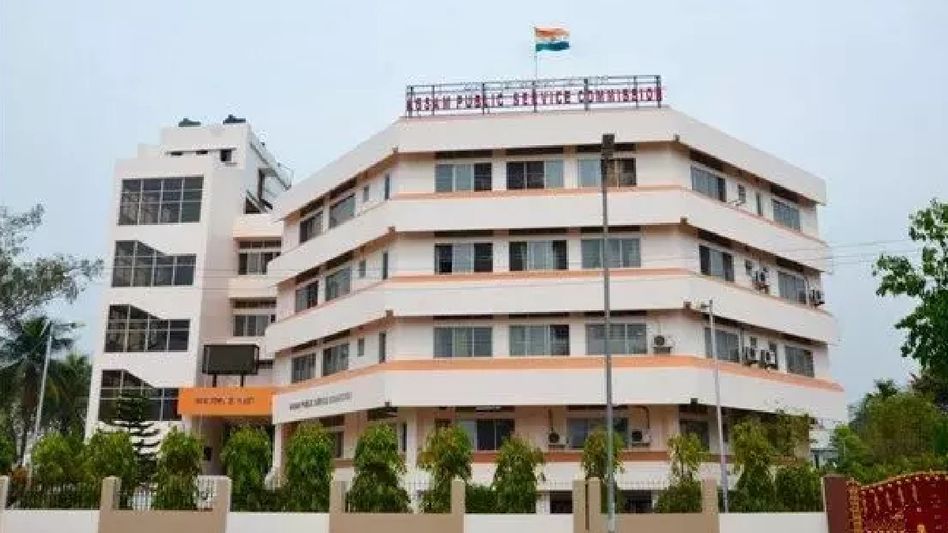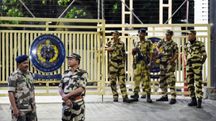Gauhati High Court suspends convictions in APSC ADO cash-for-jobs scam, grants bail to 26 accused
In a significant development, the Gauhati High Court has suspended the convictions handed down by the Court of Special Judge, Assam, in the notorious Assam Public Service Commission (APSC) Agricultural Development Officer (ADO) cash-for-jobs scam. The High Court also granted bail to 26 of the accused, providing temporary relief from the severe sentences imposed earlier.

In a significant development, the Gauhati High Court has suspended the convictions handed down by the Court of Special Judge, Assam, in the notorious Assam Public Service Commission (APSC) Agricultural Development Officer (ADO) cash-for-jobs scam. The High Court also granted bail to 26 of the accused, providing temporary relief from the severe sentences imposed earlier.
The Gauhati High Court's decision to suspend the verdict from the Court of Special Judge, Assam, marks a critical turning point in the long-standing APSC ADO cash-for-jobs scandal that had rocked the state. On July 29, 2024, the Special Judge's Court sentenced former APSC chairman Rakesh Paul to 14 years of rigorous imprisonment and imposed a fine of Rs. 2 lakh on him. Additionally, two other former APSC members received 10-year prison terms.
The scandal, which first surfaced in 2015-16, involved widespread corruption in the APSC, specifically linked to the selection process for Agricultural Development Officer (ADO) positions that were advertised in 2013. The corruption allegations centered around the manipulation of marks and the acceptance of bribes from candidates seeking government jobs.
The legal proceedings gained momentum after a candidate, who had not been selected for an ADO position, lodged a formal complaint at Bhangagarh Police Station in Guwahati in 2017. The complainant alleged that after passing the screening test and appearing for the viva-voce, he was asked by Rakesh Paul and an associate to pay a bribe of Rs. 15 lakh to secure the job. The candidate managed to pay Rs. 50,000 but was unable to meet the full demand, leading to his exclusion from the final selection list.
This complaint triggered a wider investigation, which revealed significant irregularities in the selection process. An RTI request revealed discrepancies in the marks of a selected candidate, Mrigen Haloi, who had different scores listed in various official documents. The initial FIR named only Rakesh Paul, Mrigen Haloi, and an APSC employee, Mosaraf Hussain. However, as the investigation progressed, the list of accused grew to include 44 individuals, among them former APSC members, 35 ADOs, and three middlemen.
The case took a dramatic turn when one of the accused APSC members turned approver, providing crucial testimony that further implicated Paul and other APSC officials. The approver testified that she was pressured by Paul and others to manipulate marks in exchange for 'special' gifts, a testimony that played a significant role in the Special Judge's convictions.
The Special Judge's Court ultimately found Rakesh Paul and the other APSC members guilty under various sections of the Prevention of Corruption Act and the Indian Penal Code (IPC), including charges of cheating, forgery, and criminal conspiracy. The 29 ADOs were convicted of cheating and forgery, with each sentenced to four years in prison and fined Rs. 10,000.
However, in a surprising twist, the Gauhati High Court, after hearing the appeals, decided to suspend the sentences handed down by the Special Judge's Court. The High Court also granted bail to 26 of the accused over the last two days, offering temporary relief as they await the final adjudication of their appeals. The suspension of the verdict and the granting of bail have brought temporary respite to the convicted individuals, who had faced the prospect of long-term incarceration.
The High Court's decision has sparked discussions across Assam, with many questioning the future course of the case. Legal experts have noted that while the suspension of the sentence does not equate to an acquittal, it does indicate that the High Court may have found sufficient grounds to reconsider the evidence and the application of the law by the Special Judge's Court. This development is likely to have significant implications for the accused, particularly Rakesh Paul, who was viewed as the central figure in the scandal.
The case has had far-reaching consequences beyond the courtroom. The APSC ADO scam exposed deep-rooted corruption within the Assam Public Service Commission, leading to widespread public outrage and a loss of confidence in the state's recruitment processes. The scandal prompted a series of reforms aimed at restoring transparency and integrity in government job recruitments. However, with the High Court's recent intervention, the future of these reforms may be called into question, especially if the sentences are ultimately overturned.
Moreover, the suspension of the sentences and the granting of bail have led to debates on the effectiveness of the judicial process in tackling corruption. Critics argue that such decisions could undermine public trust in the judiciary's ability to deliver justice, particularly in high-profile corruption cases. On the other hand, supporters of the High Court's decision contend that the legal process must be allowed to run its course, with all avenues of appeal and review fully exhausted before final judgments are made.
Copyright©2025 Living Media India Limited. For reprint rights: Syndications Today









